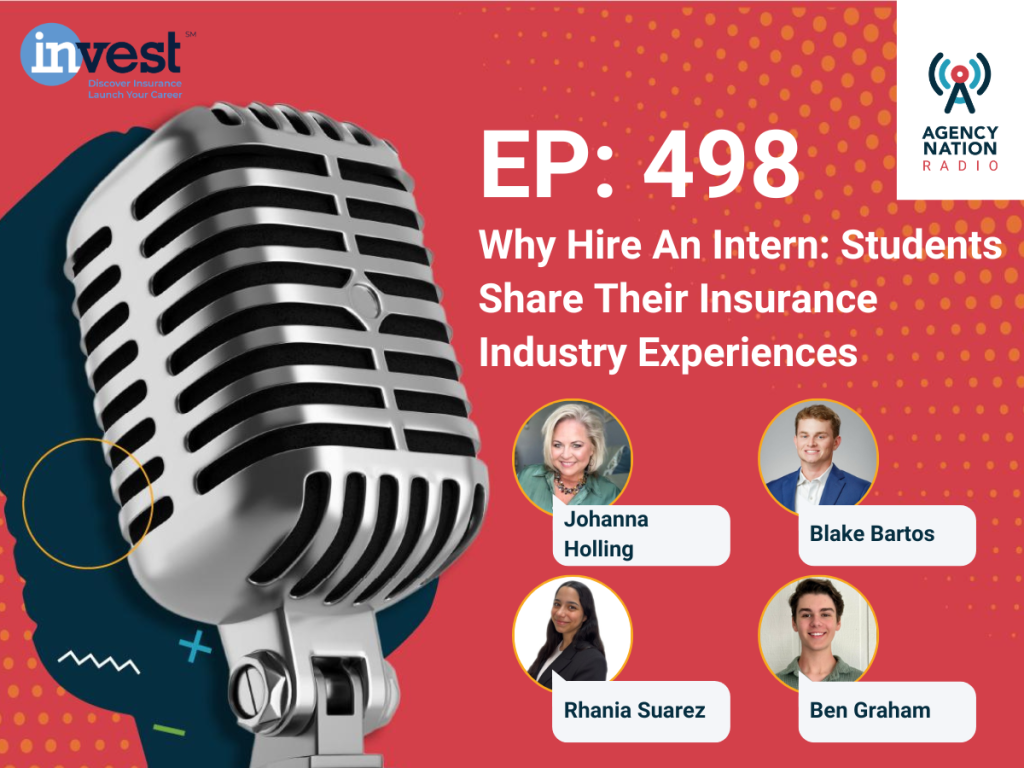You’re a Family-Run Agency but Are You a Family-Friendly Agency?

By: Will Jones
With children unable to attend in-person school, working parents have been charged this past year with overseeing their children’s education through a constantly changing patchwork of in-person, virtual and asynchronous days, while also working 9 to 5. Meanwhile, parents with daycare-aged children have been faced with an altogether different struggle, juggling work time with childcare.
However, work still had to be done, deals had to be closed and deadlines had to be met. For many parents, the pressure has been too much. As work, family and more converged into the confines of a Zoom call, many caregivers have turned to their employers for support, providing a reminder that when there is no childcare infrastructure, employers and managers wind up being indirectly responsible for helping to support their coworkers’ ability to work.
Overall, 52% of employed parents with children younger than 12 in the household say it has been difficult to handle childcare responsibilities during the coronavirus outbreak, up from 38% in March 2020, according to the Pew Research Center.
Nonetheless, as life shows signs that it may be returning to normal, a typical family-owned independent insurance agency stands prepared as one the best-placed businesses to embody a family-friendly workplace that can attract and retain employees who have—or are planning to have—children.
“A family business understands family, and then that transitions to how you view your employees because you’d do the same things for them that you would do for your own family,” says Charles Hruska, CEO of Hruska Insurancenter Inc. in Mokena, Illinois.
Last year, Charles and Jodi Hruska (pictured below) celebrated their 30th wedding anniversary and recently welcomed their son into the family business. After raising three children while running the 20-person, 65-year-old agency, they have sought to cultivate a workplace culture that treats employees like family and embodies family values, particularly for employees with children.
“As an employer, it’s important to make sure you’re helping your employees raise their children,” explains Jodi Hruska, chief operating officer of Hruska Insurancenter. “I feel responsible. They’re at work more of their day than they are at home. If we can make their lives easier, they come to work liking or loving their job rather than thinking it’s just a way to make ends meet—which is a win for everyone.”
“We had to balance things,” Charles says. “We just happened to be doing it inside the same business. That experience gave us perspective about what it’s like to work here and raise a family because we experienced it ourselves. If our employees are healthy and happy, they’re more productive. You have to have the perspective that they are your family.”
![TOC.jpg]() Boom or Bust
Boom or Bust
During the pandemic, parents faced a childcare crisis which led to an outsized impact on women, in particular. Overall, nearly 2.4 million women exited the workforce between February 2020 and February 2021, compared with fewer than 1.8 million men, according to the Bureau of Labor Statistics.
Many women left the workforce because their jobs required a physical presence, which accounted for a large number of job losses in women-dominated industries, such as hospitality and health care. However, in jobs where work was able to be completed at home, the strain often became too much for many primarily because “women are still fitting into stereotypical roles of doing the bulk of cooking, cleaning and parenting,” and “working becomes impossible,” NPR reported last year.
Couple this with the fact that women earn 81 cents for every dollar earned by men, according to Census Bureau data from 2018, and this leads to the realization that when one of two parents faces quitting to take care of a family member or raise children, the lower earner often makes way.
“It’s been a massive crisis over the past year, particularly since September 2020. One of the things that I’ve heard is that women just feel like the only option is to quit,” says Lori Mihalich-Levin, author of “Back to Work After Baby: How to Plan and Navigate a Mindful Return from Maternity Leave” and the CEO and founder of Mindful Return.
Hard Reset
The pandemic required employers to increase flexibility for employees with children but more importantly, “managers needed to reset expectations,” Mihalich-Levin says, whose company provides e-courses and other resources focused on empowering employers and employees to work together to help new parents navigate going back to work after having a baby.
“Yes, work needed to get done,” she adds. “Yes, certain things are urgent. Yes, there are fires to be put out. But there are deadlines that can be moved, some goals that don’t need to be as aggressive, and there are a number of ways that we can reallocate resources and slide deadlines, so we’re not expecting the same thing that we expected pre-pandemic.”
Yet, even before the pandemic, it was an all-too-common occurrence for women to “off-ramp” their careers after deciding to have children. “Pre-pandemic, 43% of new mothers were leaving the workforce within a year of having a baby—and with over 2.4 million women currently suffering from burnout, a mass exodus isn’t just a future worry—it’s happening right now,” according to “Parents at the Best Workplaces™,” a study of working parents conducted by Maven Clinic and Great Place to Work.
“What was a leaky bucket is now a waterfall of talent leaving the workforce,” the study says. “Employers need proven strategies now to retain the one-third of their workforce who are parents, many of whom are facing a breaking point.”
Emphasis on Empathy
There are several ways that employers can support mothers returning to the workplace after maternity leave. In particular, short-term disability is vital.
“As a small agency, it’s very hard to offer that benefit, but we make it a priority and give up other expenses to make that happen,” Jodi says. “When people become pregnant, they shouldn’t have to worry about where their income is going to come from. Everything that a regular corporation or larger company would have, we have made sure every one of our people has too.”
Returning to work after the arrival of a little one puts a host of new pressures on parents. To make the transition easier for new parents, “a ramp-up schedule for returning from parental leave is something that I love,” Mihalich-Levin says. “What I love even more is when employers pay 100% for that schedule. That eases the person back in and acknowledges that there is a transition period, which an employer pays them the full rate for.”
A key part of helping to ease a mother’s return to work after the birth of a child is supporting breastfeeding. The American Academy of Pediatrics recommends that infants be exclusively breastfed for about the first six months with continued breastfeeding along with introducing appropriate complementary foods for one year or longer. This recommendation puts immense stress on mothers trying to juggle work while also trying to provide the best care for their new child.
To smooth the transition back to work while supporting the need to provide breastmilk to their children, Walsh Duffield Companies Inc., a fifth-generation family-owned independent insurance agency based in Buffalo, New York, put several resources in place for nursing moms, explains Marie Story, corporate wellbeing consultant—team leader at Walsh Duffield.
“We had a lot of moms that were returning to work, so we wanted to make sure we had comfortable places in the office that were private and available for new moms who wanted to continue nursing because we know that that’s a really important part of a mom’s mental health,” Story says.
The facilities Walsh Duffield provide for pumping—a comfortable room, sink, refrigerator and privacy—also gained the agency a workplace designation from the county department of health. “A lot of moms who return to work find pumping so horrible, they have to go out to their car—talk about horrible,” Story says. “We really try to make it comfortable for them.”
But if a small independent agency doesn’t have the resources to build a permanent designated room, offering an empty office or designating another person’s office to someone who is breastfeeding for a specific period of time could be viable alternatives. And if budget restraints mean it’s impossible to pay 100% for a ramp-up period, one of the most important things managers can do to support parents is to “put a high emphasis on empathy” and “show up with a belief in them as a colleague for the long run,” Mihalich-Levin says. “That means more than free diapers or any benefit an employer could throw at you.”
Currently, an employee at Hruska Insurancenter is pregnant. “When she came in to tell me, she was able to come in with excitement and know that we were going to support her wholeheartedly,” Jodi says. “There are some businesses that will create a culture where people are scared to tell their employer they’re pregnant. It is nerve-racking. That is not the culture we’ve created.”
“Parents shouldn’t have to win the manager lottery to have a good experience,” Mihalich-Levin says. “If managers can be trained on how to respond to their staff becoming parents, I think we’ll be in a better place.”
Baby Talk
As the pandemic brought the fragility of balancing a career and a family into focus, it ignited conversations around the country. A frequently seen product of the pandemic was employee-led support groups where parents could share experiences and strategies for how they were managing the situation.
At Walsh Duffield, “a group of young parents were getting together for video calls to talk about the challenges with remote learning and trying to work and balance everything,” says Lindsay Hayes, head of marketing at Walsh Duffield.
“The group was led by a father, which shows that support doesn’t have to just come from the women in our organization,” she says. The agency’s culture in regard to family matters is something that “I think everyone kind of feels, and it really comes from the top down.”
Hayes and Story both entered parenthood while at Walsh Duffield and took advantage of the family-friendly culture at the company. But on the day Ted Walsh, CEO and fourth-generation owner of Walsh Duffield, became a father 40 years ago, it was a very different experience.
“I left the office, went to the hospital, was there for a couple of hours and then I came back to work,” Walsh recalls. “I bought some cigars, and I handed them out because that’s what my father said you should do—that was what was expected.”
“It’s very different for fathers today because fathers are expected to be more involved, which is so wonderful because there’s an opportunity to connect—and you’ll never get those moments back,” he says. “I used to call home multiple times a day to find out what my daughter was doing. I felt like I was missing everything.”
Today, employers are beginning to recognize the benefits of offering paternity leave, such as helping to lift families’ relationships and generating increased enthusiasm among fathers for the employers that supported them, according to McKinsey. But despite the shift in cultural and employer support for fathers, less than half take advantage of all the leave benefits offered to them, according to the Organisation for Economic Co-operation and Development.
So, how does an agency ensure they’re providing all parents with the support and flexibility they need to fulfill their parenting roles?
Unfortunately, there’s no single answer because different employees require different types of support. “As the pandemic environment continues to evolve, and as we eventually move into a post-pandemic situation, it is crucial to stay connected with employees, understand their challenges and devise strategies to give them the support they need,” says Chalina Acosta, vice president of Total Rewards at Selective. “An excellent place to start is by listening to employees to understand their needs.”
Listening to employees’ needs can occur in the form of “individual conversations, group or panel discussions, or through engagement surveys,” says Jeff Beagle, assistant vice president of human resources at INSURICA in Oklahoma City, Oklahoma. “All of those avenues have produced real, recent change for INSURICA’s policies and practices on leave, volunteer time, benefits and remote work capabilities that I hope demonstrates to all of our colleagues that we listen and will adapt.”
All for One
It hasn’t just been parents who have suffered through the depths of the pandemic. Many young and single people have been suffering too. In fact, 31% of adults said they’d experienced symptoms of anxiety or depression in the last 30 days, according to a Centers for Disease Control and Prevention survey released in August 2020.
But most shockingly, the survey showed that 26% of respondents aged 18-24 years admitted seriously considering suicide, outranking 22% of essential workers.
“Sometimes we forget about people, often young, sitting in a 600-square-foot efficiency apartment, possibly with their significant other, trying to work,” Charles says. “They tend to get overlooked, so we look at our definition of our family as being much broader than just people with kids.”
For employers, this means that many of the resources designed to make life better for parents are equally as effective with the rest of their employees.
“We have a meditation app that is a huge resource for a lot of the younger generation,” Story says. “We’ve been encouraging meditation and mindfulness, which can be really important for everybody, not only someone who’s caregiving.”
Walsh Duffield also works with a local employee assistance program (EAP), which has been important to provide support to parents as well as people living alone who may be feeling isolated.
“A lot of EAPs out there just provide a call-in number and say, ‘here you go,'” Story says. “But ours has done fantastic webinars all throughout the pandemic toward the whole spectrum of staff here.”
Money Worries
More than half of employees consider “financial or money matters/challenges” their biggest cause of stress, according to PwC’s 2020 Employee Financial Wellness Survey.
Employers that connect their employees with the best resources to manage the non-work-related aspects of their lives are more likely to avoid employee burnout. In addition to parental resources, “we provide access to outside financial planning resources,” Walsh says.
For today’s multi-generational workplace, it’s not just about planning for retirement. “It’s about planning for next week’s crisis, like buying a house or a car and managing student loans,” Walsh says. “If we can help get people on a more solid financial footing, then it makes it easier for them to cope with all those emotional things that seem to present themselves in life.”
“If your world is tipped upside down financially, all of those other things just seem overwhelming and monumental,” he adds.
Back to Work
“Vacations reduce stress by removing people from the activities and environments that they associate with stress and anxiety,” according to the American Psychological Association. But during what felt like the most stressful year ever, the American workforce took less vacation.
While 96% of Americans recognize the value of vacation days, over 40% don’t use them, according to a 2014 study by the U.S. Travel Association and GfK. The two most common reasons survey respondents cited for not taking a break: They dread the pile of work awaiting them when they return, and no one else can do what they do at the office.
“People love vacation but our team makes sure they don’t hate coming back,” says Boyd McGehee, owner of Talladega Insurance Agency in Talladega, Alabama. “If you really work for a family agency where people care about each other, no one is going to leave a bunch of rotten eggs on their teammate’s desk while they’re gone because not only are they going to be unhappy when they return, but their clients are too.”
With air travel unadvisable and public spaces uncomfortable, 28% of workers took fewer days off last year, according to a survey by Robert Half. Furthermore, 40% of workers report their job was very or extremely stressful, 29% of workers feel quite a bit or extremely stressed at work, and 25% view their jobs as the No. 1 stressor in their lives, according to the American Institute of Stress. Based on those statistics, it is not only essential but necessary for employees’ wellbeing to take vacation.
“If you’re an agency that’s striving to be more like a family, make sure that the team is looking after someone’s desk while they’re on vacation,” Boyd says.
In the remote work environment, Boyd is hesitant about hiring new employees and properly instilling his agency’s family values. When it is safe for staff to return to the office, “I’m looking for a happy medium, maybe 75% virtual and 25% in person to try and keep that close-knit family atmosphere.”
“But there’s not a family-owned independent agency that doesn’t help their employees,” he adds. “It’s the greatest-kept secret. This industry allows families to be families and not be ashamed of it.”
Will Jones is IA editor-in-chief.
Humans, Not ResourcesCompanies that invest in employees and their families see better innovation, which leads to 5.5 times the revenue growth of their peers, according to “Parents at the Best Workplaces™.” Given that 86% of working mothers say they would leave a job for an opportunity that better supports their work and life considerations, according to The Mom Project, and 92% of employees are willing to put in extra effort at “Best Workplaces for Parents™” compared with just 82% at other workplaces, there is a clear business case for supporting working parents. Since the pandemic altered the way Americans both work and parent, here are three modern ways employers can help working parents once the pandemic is over: 1) Core office days. Every agency will take a different approach to how they are going to fully reopen their office. Mihalich-Levin suggests that agencies should “pick a day or two day of the week when everyone is in the office, and designate those as your core days, so that everybody gets to see each other,” she says. “Then—this is a bit radical—but another idea is to forbid anyone from going back to the office five days a week,” Mihalich-Levin adds.“ That way you’re leveling the playing field for people who really need to not go back to the office five days a week.” 2) Telemedicine. Several years ago, Hruska Insurancenter switched health insurance providers. “One of the things we liked about the new carrier was their telemedicine,” Charles explains. “From a parent’s standpoint, whether it’s them or their kids, it allows them to be able to speak to a doctor quickly and efficiently without having to take a half-day of work out.” 3) 9 a.m. starts and lunchtime closures. Sometimes, there just aren’t enough hours in the day. To make their employees’ to-do list a little more manageable, Hruska Insurancenter decided to open at 9 a.m. every morning and close for an hour at lunchtime. “Morning is one of the hardest times to find care and that way, our team can get their children to school,” Jodi says. “We close from noon to 1 p.m. so no one has to back anybody up, no one has to be there for anyone, and if they have an appointment or need to run to the grocery store they can.” —WJ |










